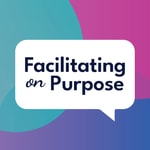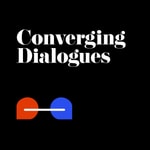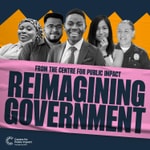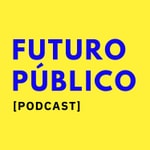The Clock and the Cat – Détails, épisodes et analyse
Détails du podcast
Informations techniques et générales issues du flux RSS du podcast.

The Clock and the Cat
Mark Foden
Fréquence : 1 épisode/194j. Total Éps: 11

Classements récents
Dernières positions dans les classements Apple Podcasts et Spotify.
Apple Podcasts
🇬🇧 Grande Bretagne - government
21/06/2025#93🇬🇧 Grande Bretagne - government
20/06/2025#61🇬🇧 Grande Bretagne - government
12/06/2025#88🇬🇧 Grande Bretagne - government
11/06/2025#57🇬🇧 Grande Bretagne - government
25/03/2025#76🇬🇧 Grande Bretagne - government
27/02/2025#98🇬🇧 Grande Bretagne - government
26/02/2025#69🇬🇧 Grande Bretagne - government
12/02/2025#71🇬🇧 Grande Bretagne - government
18/01/2025#87🇬🇧 Grande Bretagne - government
17/01/2025#51
Spotify
Aucun classement récent disponible
Liens partagés entre épisodes et podcasts
Liens présents dans les descriptions d'épisodes et autres podcasts les utilisant également.
See all- https://www.centreforpublicimpact.org/
5 partages
- https://johnniemoore.com
4 partages
- https://www.complexityexplorer.org/
3 partages
Qualité et score du flux RSS
Évaluation technique de la qualité et de la structure du flux RSS.
See allScore global : 59%
Historique des publications
Répartition mensuelle des publications d'épisodes au fil des années.
Episode 11 - Don't Panic
Épisode 11
vendredi 22 mars 2024 • Durée 36:16
This episode is a conversation with Johnnie Moore about his inspiring work as facilitator
Johnnie Moore - Bio
Johnnie Moore is a great facilitator, He's written two books about it - Creative Facilitation and Unhurried. More here johnniemoore.com
Episode 10 - How to make good telly
Épisode 10
vendredi 9 juin 2023 • Durée 35:16
This episode is another conversation with Daniel Thornton (like Episode 2 but this time with bells on) about Covid, companies dying, electric cars, corporate bullshit, and the Succession series.
Daniel Thornton - Bio
Daniel studied PPE at Oxford and History at LSE. He’s had huge experience in central government. He worked in the Foreign Office, Parliament, the Treasury, DCLG and has been a Private Secretary to the Prime Minister.
He’s been a programme director at the leading think tank the Institute for Government, the Director for External Relations at Ark an educational charity running dozens of schools and is currently an adivsor with the global vaccine alliance GAVI.
Episode 1 - About the Clock and the Cat
Épisode 1
samedi 1 décembre 2018 • Durée 06:46
For more information read my stuff on complexity or these books:
- The Quark and the Jaguar by Murray Gell-Mann
- Complexity by Michael Waldrop
Episode 9 - Experimental Finland
Épisode 9
mercredi 19 février 2020 • Durée 48:28
This episode is a conversation with Olli-Pekka Heinonen - currently the civil servant responsible for primary and secondary education in Finland - about his experience of applying complexity thinking in the Finnish government.
Olli-Pekka Heinonen - Bio
Olli-Pekka is the Director General of the National Agency for Education in Finland and is responsible for running primary and secondary education for the whole of Finland. He's been in public service for 30 years both as a senior politician and a civil servant. He's been the State Secretary in the Prime Minster's office and had a variety of cabinet roles. He's also been a TV director in the Finnish National Broadcasting company. Olli-Pekka is a complexity enthusiast, speaks regularly about organisational change and is involved in leadership coaching.
Episode 8 - Not systems thinking
Épisode 8
lundi 13 janvier 2020 • Durée 33:11
This episode is a conversation with Eric Wenzel about his experience of the theory of complex responsive processes of relating.
Selected quotes
"And it took me the three years of the [Doctor of Mangement] programme to try and understand what it was that I was contributing" - 3:52
"Complex responsive process... [theory is] ...important because it offers a compelling alternative to accepted ways of thinking about organisations as systems" - 8:52
"In complex responsive processes thinking there is this insight that humans are not like birds and not like fish ... because they have capacity to react creatively, and to react spontaneously" - 19:58
"it's very difficult to sustain the notion of ... systems when you think about human interaction" - 21:48
"I have to engage with people ... and not appear like a high-spirited cowboy who talks about things that nobody knows about and that sound very crazy" - 22:43
"I felt a kind of loneliness" - 31:34
References
- Book - The Emergence of Leadership - Douglas Griffin
- Post - Complex responsive processes – 4 pillars of thought, 5 key insights - Chris Mowles
- Book - Strategic Management and Organisational Dynamics - Ralph Stacey and Chris Mowles
- Doctor of Management Programme - University of Hertfordshire
- Complexity and Management Conference - 5-7th June 2020
Eric Wenzel - Bio
Eric is a management consultant working in a big international consultancy.
He's in involved in assessing, training and coaching senior executives and specialises in supporting change in complex environments. He's been at this for 20 years or so.
He is a Doctor of Management from the University of Hertfordshire. His first degree is in Psychology.
At the moment he's writing a book about paradox in management.
Episode 7 - Turning the purpose of management upside-down
Épisode 7
lundi 4 novembre 2019 • Durée 27:46
Selected quotes
“The idea of complexity helped us explain why outcome based performance management [is failing]” - 3:09
“Outcome based performance management … and New Public Management … is conceptually flawed” - 6:21
“We needed a new paradigm” - 6:41
“You’ve got a crackpot idea about doing something fundamentally different. How do you persuade people to pay you to do it?” - 7:15
“Is it ok to talk about complexity?” - 10:02
“When we first started out on this path, people explicitly told us not to use the language of complexity because it was off-putting” - 10:48
“…dismantle … the idea of randomised controlled trials” - 13:40
“Delving into the conceptual ideas which underpin this help to really get to grips with some of the failures of the existing forms of public management” - 13:59
“The concept[s] that underpin complexity provide that fundamental challenge which was lacking before” - 15:05
“I’ll see your health economist, and I’ll raise you a physicist!” - 15:40
“In a complex system we must be humble about any knowledge claims we make” [Quoting David Byrne] - 18:54
“To operate successfully in a complex environment … you needed to trust the people who were doing the work because you needed to create the space for them to respond appropriately to the ever-changing detail of the context in which they were operating” - 21:03
“It turns the purpose of management upside down” - 22:24
“It’s really hard to make the time to build relationships and do the really human scale things that enable this stuff to flourish if you’re trying to operate within a management system that is fundamentally based on the ideas of New Public Management” - 23:27
“There’s an increasing comfort with some of the language and ideas of complexity” - 24:54
“Even just two years ago, people were saying to us, ‘Don’t speak that language. You’ll frighten people.’ Now, we have the language of complexity spoken back to us.” - 25:21
References
A Whole New World — Funding and Commissioning in Complexity - 2017
Exploring the New World - Practical insights for funding, commissioning and managing in complexity - 2019
Radical Help - Hilary Cottam - 2018
Toby Lowe - Bio
Toby is a lecturer at Newcastle Business School and his bag is the funding, commissioning and performance management of social interventions. His stick of Whitley Bay rock has got complexity written the whole way through it. Over the past couple of years he’s been involved in a hugely interesting research project applying complexity ideas to social interventions.
Toby Lowe’s profile and details of his research work on the Newcastle University website
Embracing Uncertainty - Toby’s blog on complexity-informed management
Episode 6 - Trust, Gestalt and the Inflatable Elephant
Épisode 6
mercredi 13 mars 2019 • Durée 31:20
Selected quotes
> "The environment we're in changes who we are and what we bring." - 6:55
> "Gestalt for me is about ... it's about the whole and about the parts." - 8:30
> "How do we build enough trust within the team that we can start to tell each other the truth?" - 13:55
> "I really do have a blow-up elephant [in the room]" - 14:10
> "Perceived Weirdness Index ... it's okay to be weird. Just not too weird." - 18:10
> “Experiment in the moment” - 22:10
> "To [make] change in complex systems... it's a craft." - 23:15
> "Is there a way to write outcomes differently?" - "As questions. I prefer them as questions." - 28:25
> “Without trust, nothing's going to change.” - 29:25
References
* Perceived Weirdness Index - Hanafin
* Phenomenology - Merleau-Ponty
* Field Theory - Kurt Lewin
Maggie Marriott - Bio
Maggie Marriot is an independent coach, supervisor, organisational consultant and an associate with Relational Change.
She's done loads of work on big organisational change programmes in the UK Government and in the private sector.
She's interested in bringing Gestalt practice to organisational issues such as:
- lack of connection to the natural world in decision-making and
- understanding sexual attraction at work.
She cares passionately that organisations remember they are part of a wider ecology and that they move from *ego* to *eco*-leadership.
Episode 5 - Experimenting
Épisode 5
vendredi 15 février 2019 • Durée 37:15
Main points
- Losing Control movement - 2:00 / 31:00
- Emphasis on evidence-based policy - 5:15
- The difference between Explicit and Tacit knowledge and the importance of place - 6:30
- Cultural barriers to experimentation - 18:45
- Buurtzorg and the need for a "heatshield" - 21:30
- Difference between pilots and experiments / and industrial vs organic approaches - 27:15
- Continuous experimentation/learning - 28:00
- Good things happening around the world - 32:45
- Government becoming an enabler - 33:45
- The challenges of replacing New Public Management with something equally compelling - 34:45
References
* Enablement mindset - Blog post by CPI
* Evidence vs experiments - Blog post by CPI
Adrian Brown - Bio
Adrian is huge public sector reform enthusiast. He’s spent more than 15 years working on transformation and performance improvement in government. He’s been a consultant with McKinsey, a Fellow of the Institute for Government in London and a policy advisor to the UK Prime Minister. He’s currently the Executive Director of the Centre for Public Impact - a not-for-profit foundation set up by the Boston Consulting Group.
Episode 4 - How to learn about complexity
Épisode 4
vendredi 11 janvier 2019 • Durée 25:02
References
Book - Quark and the Jaguar - Murray Gell-Mann
Book - Complexity - Mitchell Waldrop
Book - Strategic Management and Organisational Dynamics - Ralph Stacey
Book - The Nature of Technology - Brian Arthur
Online resources - Complexity Explorer
Course - Singapore Complexity Institute
Course - Complex Systems Summer School - Santa Fe Institute
Course - Introduction to complexity - Santa Fe Institute
Roland Kupers - Bio
Roland is an independent advisor on Complexity, Resilience and Energy Transition.
He's Dutch and speaks 4 other languages fluently.
Originally a theoretical physicist he’s worked in business management in AT&T then in Shell where he held several senior positions.
He has written books on scenario planning, resilience and complexity in the context of public policy. And he’s writing another one on climate change at the moment.
He lectures in complexity and he’s an affiliate of Institute for Advanced Studies in Amsterdam.
Episode 3 - What complexity actually is
Épisode 3
mardi 8 janvier 2019 • Durée 45:36
Roland Kupers - Bio
Roland is an independent advisor on Complexity, Resilience and Energy Transition.
He Dutch and speaks 4 other languages fluently.
Originally a theoretical physicist he’s worked in business management in AT&T then in Shell where he held several senior positions.
He has written books on scenario planning, resilience and complexity in the context of public policy. And he’s writing another one on climate change at the moment.
He lectures in complexity and he’s an affiliate of Institute for Advanced Studies in Amsterdam.
More information
- Website - Roland Kupers
- Book - Complexity and the Art of Public Policy - Roland Kupers & David Colander
- Book - Connected: The Surprising Power of Our Social Networks - Nicholas Kristakis & James Fowler









